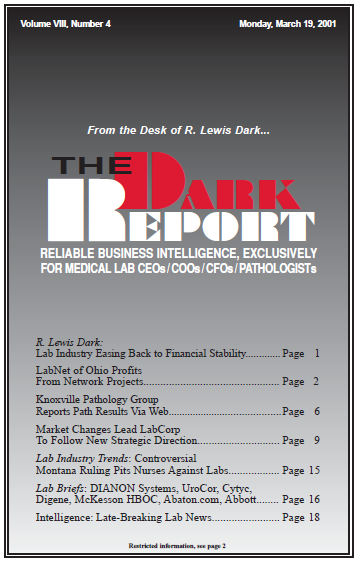MONTANA IS IN THE MIDST of an interesting feud over the scope of practice between nurses and certified laboratory professionals. On December 11, 2000, the Montana Board of Nursing issued a declaratory ruling stating that the scope of practice for nurses included performing unwaived laboratory tests. This ruling appears to ignore the Laboratory Licensure Act, …
Controversial Montana Ruling Pits Nurses Against Labs Read More »
To access this post, you must purchase The Dark Report.


